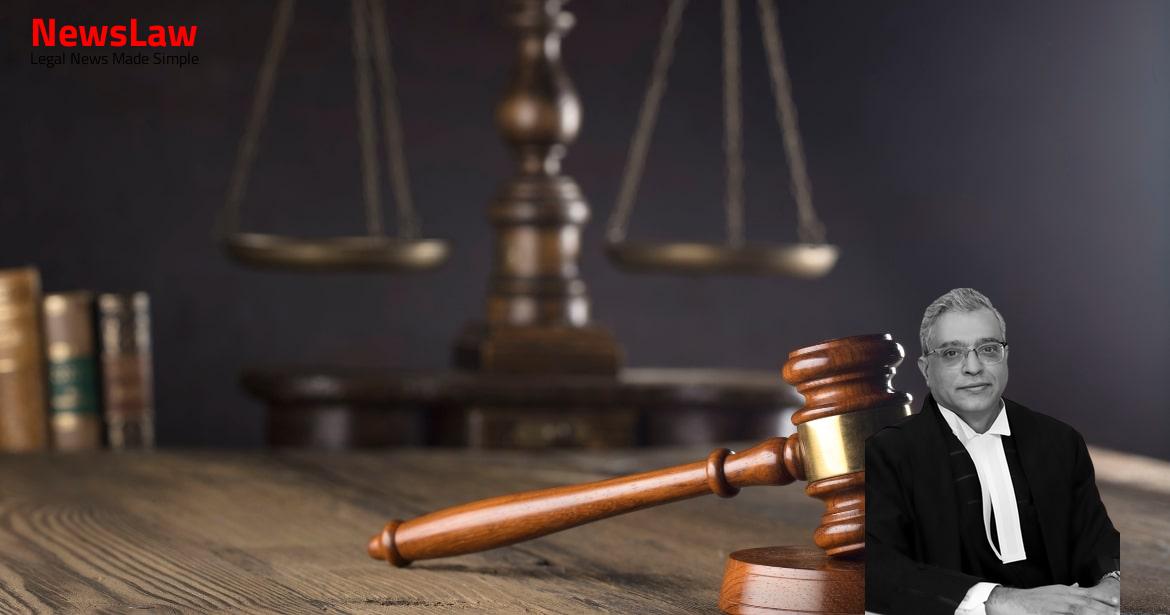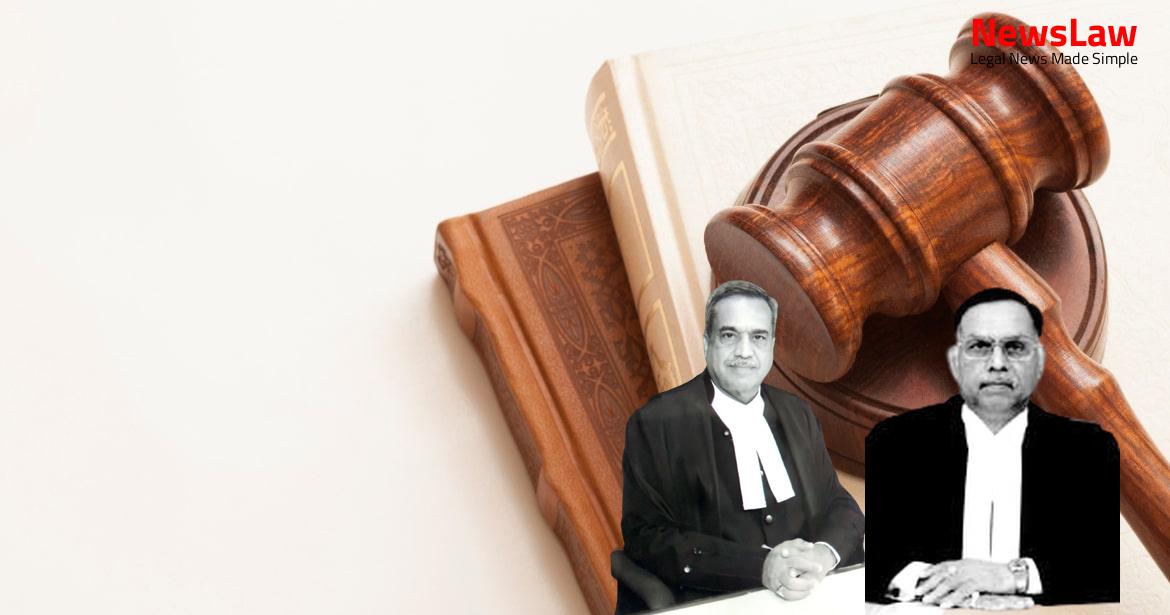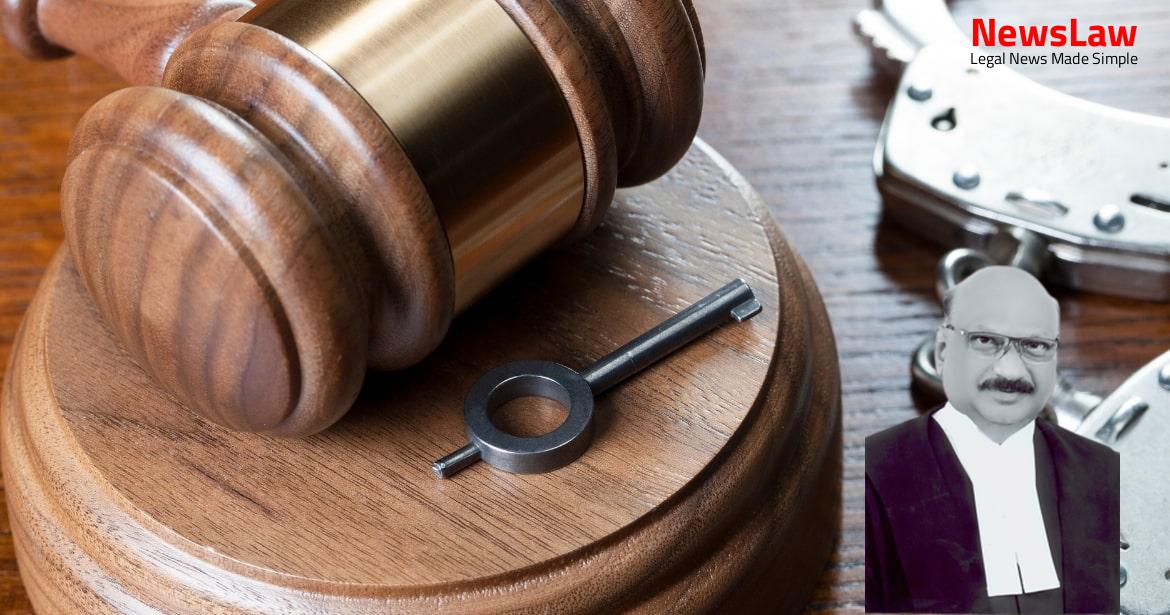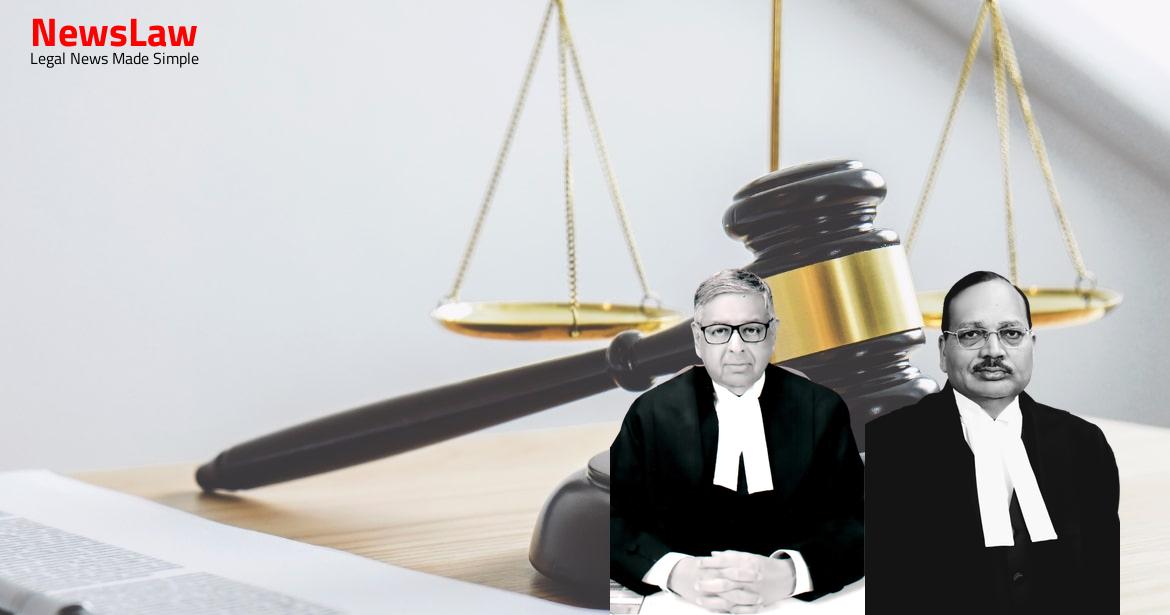2024 INSC 92 1 REPORTABLE IN THE SUPREME COURT OF INDIA CRIMINAL APPELLATE JURISDICTION CRIMINAL APPEAL NO.704 of 2024 (@ SPECIAL LEAVE PETITION (CRIMINAL) No.10047 of 2023) GURWINDER SINGH…
APPELLANT VERSUS STATE OF PUNJAB & ANOTHER…
RESPONDENTS JUDGEMENT Aravind Kumar J.
During the course of Investigation, entire module of the banned terrorist organization named “Sikh for Justice” was busted and other accused persons involved in the said module namely, Bikramjit Singh @ Vicky, Manjit Singh @ Manga, Jatinder Singh @ Goldy, Harpreet Singh @ Happy, Gurwinder Singh @ Gurpreet Singh @ Gopi-the present Appellant, Harmeet Singh @ Raju, Roofel @ Raful @ Rahul Gill, Sukhmander Singh @ Gopi and Kuldeep Singh @ Kuldip Singh @ Keepa were arrested by Punjab Police.
Also Read: https://newslaw.in/supreme-court/analysis-of-circumstantial-evidence-in-murder-case-2/
3 Due to degree of severity in the charges involved, the investigation in the present matter was transferred to the National Investigation Agency (NIA), which took over the investigation of this case as per the directions of Government of India, Ministry of Home Affairs issued vide Order F.No.11011/30/2020/NIA dated 04.04.2020 and registered the original case as RC.19/2020/NIA/DLI dated 05.04.2020.
Then they came back to Gurudwara Sahib, where Sandeep offered them to purchase RDX instead, but they declined and all three returned back to Punjab, where Bikramjit Singh (Accused No 3) was dropped off mid-way at Jandialaguru while both, the present Appellant and Harpreet Singh @ Happy, returned back to their village in Punjab. 9 Vide the Impugned order the High Court rejected the grant of bail to Appellant on the ground of seriousness of the nature of offence and that none of the protected witnesses had been examined.
Gonsalves, learned Senior Counsel contended that the Appellant has been denied bail by the Hon’ble High Court and the Ld. Learned Senior Counsel further raised contentions about the lack of scrutiny of the Appellant’s mobile phone, marked as M-4 to indicate that the phone number did not belong to the Appellant. Lastly, he stated that out of Nine protected witnesses that have been examined, eight have not mentioned the name of Appellant. In furtherance of their activities to procure arms and ammunition, the Appellant-accused along with co-accused Bikarmjit Singh @ Vicky and Harpreet Singh @ Happy (Accused No 7) had visited Srinagar. The present case involves the charges under the UAP Act along with other charges under the IPC and Arms Act 9 therefore, it is apt to consider the bail provision envisaged under section 43D of the UAP Act before we delve to analyze the facts.
(5) Notwithstanding anything contained in the Code, no person accused of an offence punishable under Chapters IV and VI of this Act shall, if in custody, be released on bail or on his own bond unless the Public Prosecutor has been given an opportunity of being heard on the application for such release: Provided that such accused person shall not be released on bail or on his own bond if the Court, on a perusal of the case diary or the report made under section 173 of the Code is of the opinion that there are reasonable grounds for believing that the accusation against such person is prima facie true.
A bare reading of Sub-section (5) of Section 43D shows that apart from the fact that Sub-section (5) bars a Special Court from releasing an accused on bail without affording the Public Prosecutor an opportunity of being heard on the application seeking release of an accused on bail, the proviso to Sub-section (5) of Section 43D puts a complete embargo on the powers of the Special Court to release an accused on bail. The conventional idea in bail jurisprudence vis–vis ordinary offences penal that the discretion of Courts must tilt in favour of the oft-quoted phrase – ‘bail is the rule, jail is the exception’ – unless circumstances justify otherwise – does not find any place while dealing with bail applications under UAP Act. In dealing with bail applications under UAP Act, the courts are merely examining if there is justification to reject bail.
Bail must be rejected as a ‘rule’, if after hearing the public prosecutor and after perusing the final report or Case Diary, the Court arrives at a conclusion that there are reasonable grounds for believing that the accusations are prima facie true. 13 1.1 Examine if, prima facie, the alleged ‘accusations’ make out an offence under Chapter IV or VI of the UAP Act 1.2 Such examination should be limited to case diary and final report submitted under Section 173 CrPC; 2) Whether the accused deserves to be enlarged on bail in light of the general principles relating to grant of bail under Section 439 CrPC (‘tripod test’)? And merely because the first test is satisfied, that does not mean however that the accused is automatically entitled to bail.
On a perusal of paragraphs 23 to 29 and 32, the following 8-point propositions emerge and they are summarised as follows: • Meaning of ‘Prima facie true’ [para 23]: On the face of it, the materials must show the complicity of the accused in commission of the offence. •
Also Read: https://newslaw.in/supreme-court/consolidation-of-firs-in-multi-state-fraud-case/
Reasoning, necessary but no detailed evaluation of evidence [para 24]: The exercise to be undertaken by the Court at this stage–of giving reasons for grant or non-grant of bail–is markedly different from discussing merits or demerits of the evidence. • Admissibility of documents relied upon by Prosecution cannot be questioned [para 27]: The materials/evidence collected by the investigation agency in support of the accusation against the accused in the first information report must prevail until contradicted and overcome or disproved by other evidence……. In any case, the question of discarding the document at this stage, on the ground of being inadmissible in evidence, is not permissible. It was held as follows: “The following instances or circumstances, in our view, would provide adequate guidance for the Court to form an opinion, as to whether the accusation in such cases is ” prima facie true “: 1) Whether the accused is/are associated with any organization, which is prohibited through an order passed under the provisions of the act; 2) Whether the accused was convicted of the offenses involving such crimes, or terrorist activities, or though acquitted on technical grounds; was held to be associated with terrorist activities; 3) Whether any explosive material, of the category used in the commission of the crime, which gave rise to the prosecution; was recovered from, or at the instance of the accused; 4) Whether any eye witness or a mechanical device, such as CC camera, had indicated the involvement, or presence of the accused, at or around the scene of occurrence ; and 5) Whether the accused was/were arrested, soon after the occurrence, on the basis of the information, or clues available with the enforcement or investigating agencies.” The bench also observed that distinction between the words “not guilty” as used in TADA, MCOCA and NDPS Act as against the words “prima facie” in the UAPA as held in Watali’s Case (supra) to state that a degree of satisfaction required in the case of “not guilty” is much stronger than the satisfaction required in a case where the words used are “prima facie” 26. 17, 18 and 21 of the UAP Act relied upon the principle propounded in Watali’s case (supra) and observed that: “the expression “prima facie” would mean that the materials/evidence collated by the investigating agency in reference to the accusation against the accused concerned must prevail until contradicted and overcome or disproved by other evidence, and on the face of it, shows that complicity of such accused in the commission of the stated offence.
— Whoever, in India or in a foreign country, directly or indirectly, raises or collects funds or provides funds to any person or persons or attempts to provide funds to any person or persons, knowing that such funds are likely to be used by such person or persons to commit a terrorist act, notwithstanding whether such funds were actually used or not for commission of such act, shall be punishable with imprisonment for a term which shall not be less than five years but which may extend to imprisonment for life, and shall also be liable to fine. Punishment for harbouring, etc.— Whoever voluntarily harbours or conceals, or attempts to harbour or conceal any person knowing that such person is a terrorist shall be punishable with imprisonment for a term which shall not be less than three years but which may extend to imprisonment for life, and shall also be liable to fine: Provided that this section shall not apply to any case in which the harbour or concealment is by the spouse of the offender.” 20 28.
Case Title: GURWINDER SINGH Vs. STATE OF PUNJAB (2024 INSC 92)
Case Number: Crl.A. No.-000704-000704 / 2024



